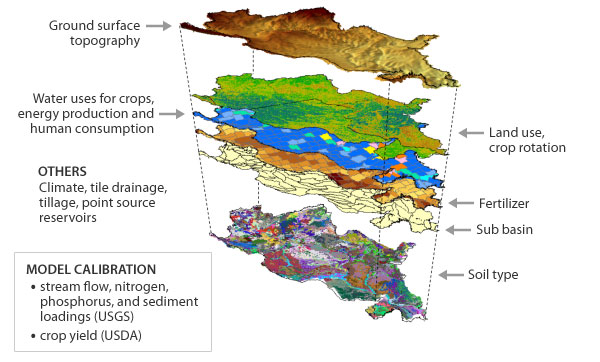
, . - decrease / increase font size
DEL - remove font from current set Home - restore font set to initial
Case Studies
Modeling Climate/Crop Impacts on Hydrology
Modeling the hydrology of the Mississippi River Basin to assess the impacts of climate change, crop growth, and energy production driven by energy/economics factors.

Approach. Swift is used to perform large-scale watershed simulations using SWAT, the Soil and Water Assessment Tool, to study the impacts of global climate change, large-scale biomass feedstock production, and potential water demands on the regional hydrologic system in the Upper Mississippi River Basin. These studies use Swift to perform calibration, sensitivity studies, and optimization using SCE (shuffled complex evolution) optimization methods. All of these computational modeling procedures involve multiple runs of thousands of invocations of SWAT to simulate the temporal and spatial changes in evapotranspiration, soil moisture, runoff, groundwater recharge, crop yields, as well as water quality in streams such as nitrogen, phosphorous, and eroded sediments in regional hydrologic system.
Results. Results of this research demonstrate dynamic interrelationships among water quantity and quality, biofuel production, crop growth/management, and climate change. The modeling tool developed in this study can be used to address future sustainability of the regional/local hydrologic systems.